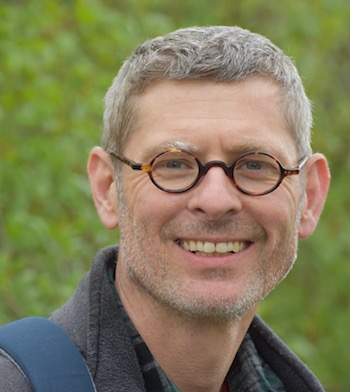Sabbatical Sojourns: Philosophy with Ian DeWeese-Boyd
This is the second in a series of seven articles featuring the research conducted by faculty members on sabbatical during the fall 2018 semester. A shorter version of this article originally appeared in the spring 2019 issue of STILLPOINT. Read more articles from this issue here: stories.gordon.edu/tag/stillpoint2019

Philosophers have long wrestled with “the problem of evil.” Traditionally, they have sought some explanation for how a perfectly loving God could possibly allow the horrific levels of suffering we experience on a daily basis. These explanations, even when rationally sound, notoriously fall short of consoling those actually experiencing anguish. Recently, some philosophers, including Ian DeWeese-Boyd (philosophy), have begun to address this insufficiency.
On sabbatical, he analyzed the topic by exploring wisdom from the past: The Revelations of Divine Love by the 14th-century Christian mystic, Julian of Norwich. Julian was thirty when she fell gravely ill and experienced a vivid vision of Jesus on the cross. Viscerally, every moment of the vision she feels the terror of his dying. Anguished yet faithful, she questions him about the existence of evil, sin and its appalling aftermath. The stunning answer she receives is that all of this suffering is somehow fitting (behovely) and more stunning still “Alle shalle be wele, and all shalle be wele, and all maner of thinge shalle be wele.”
What interests DeWeese-Boyd is how Julian comes to find these words credible and how her work makes it possible for modern day readers to find them credible too. In part, he thinks “Julian’s texts function to provide a place for those suffering to encounter Jesus as a suffering savior in whom they can find consolation, if not explanation, for their wounds.” Julian’s meditation on God’s role in suffering effectively “brings readers into Julian’s visions to witness their comforter.”
DeWeese-Boyd’s sabbatical also included the final phase of a grant to study dialogic pedagogy and intellectual humility. His final job was to analyze the resulting data and create resources to help professors employ dialogue effectively.
 The Bell
The Bell